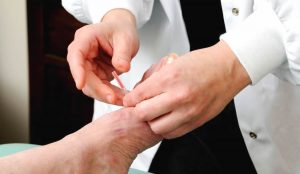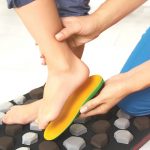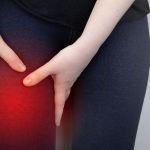Experiencing leg pain upon waking can signal underlying health issues that need attention.
Morning leg pain can result from various factors, including muscle cramps, restless leg syndrome, or peripheral artery disease. Addressing these underlying conditions is crucial for preventing worsening symptoms and enhancing your well-being.
It’s important to learn the causes of morning leg pain, available treatments, and self-care tips to alleviate discomfort.
Key Insights
- Morning leg pain may indicate an underlying medical problem.
- Identifying and addressing the root causes are essential to prevent worsening symptoms.
- Various treatment options and self-care strategies can help manage morning leg pain.
Understanding Morning Leg Pain and Its Triggers
Experiencing morning leg pain is a common issue, particularly among individuals over 50.
Several factors, such as medical conditions and lifestyle choices, contribute to this discomfort.
Medical Conditions
Morning leg pain often stems from underlying medical conditions affecting leg muscles, bones, or nerves. Common conditions linked to morning leg pain include:
- Peripheral Artery Disease (PAD): PAD results from narrowed or blocked leg blood vessels, causing poor circulation, leg pain, cramping, and numbness, especially during physical activity or rest. PAD also raises the risk of heart attack and stroke.
- Restless Leg Syndrome (RLS): RLS is a neurological disorder characterised by an irresistible urge to move the legs, particularly at night. It disrupts sleep and leads to daytime fatigue, often accompanied by uncomfortable leg sensations.
- Muscle Cramps: Sudden, painful muscle contractions in the leg can occur during exercise or sleep, potentially waking you up at night. Dehydration, nutrient deficiencies, and specific medications can increase the risk of muscle cramps.
- Deep Vein Thrombosis (DVT): DVT involves blood clot formation in deep leg veins, causing swelling, warmth, and pain in the affected leg. DVT can be severe, as clots may dislodge and cause a pulmonary embolism by travelling to the lungs.
If you recognise these symptoms, it’s vital to consult a healthcare professional for accurate diagnosis and tailored treatment.
Lifestyle Factors
Apart from medical conditions, certain lifestyle factors contribute to morning leg pain:
- Sedentary Lifestyle: A lack of physical activity.
- Poor Diet: Unhealthy eating habits.
- Obesity: Carrying excess body weight.
- Smoking: Tobacco use.
- Stress: High stress levels.
If you experience morning leg pain and have a sedentary lifestyle or other relevant factors, consider making necessary changes to alleviate symptoms.
Ways to Relieve Morning Leg Pain
Managing morning leg pain involves various treatment options tailored to the underlying medical condition. Here are common approaches you can do on your own, but it’s always best to seek professional advice for safety:
Lifestyle Changes
Effective treatment often begins with lifestyle modifications. These may include maintaining a healthy weight, quitting smoking, and regular exercise. Specific stretching exercises or physical therapy might also be recommended to alleviate symptoms.
Medications
Depending on the underlying condition, your doctor may prescribe medications to manage morning leg pain. These may include pain relievers, muscle relaxants, or condition-specific medications for PAD or RLS.
Physical Therapy
Physical therapy can improve circulation, enhance muscle strength and flexibility, and reduce the frequency and severity of symptoms. Your doctor may recommend this approach as part of your treatment plan.
How The Footwork Clinic Addresses Leg Pain
The Footwork Clinic takes a comprehensive and holistic approach to address morning leg pain and various musculoskeletal issues related to the legs.
Morning leg pain can often be attributed to underlying soft tissue problems, such as trigger points and muscle tightness, which may not receive adequate attention from traditional treatment methods.
Here’s how The Footwork Clinic addresses morning leg pain:
- Identification of Soft Tissue Problems: We recognise that morning leg pain, cramps, tightness, and aching muscles can be symptoms of underlying soft tissue issues. We are attentive to the fact that these symptoms are frequently overlooked or misdiagnosed by practitioners.
- Understanding Trigger Points: The Footwork Clinic acknowledges that active trigger points can play a significant role in musculoskeletal pain, accounting for a substantial percentage of such pain in the body. We define trigger points as hyperirritable spots within skeletal muscles that can lead to motor dysfunction and autonomic symptoms.
- Referred Pain Management: We understand that trigger points can cause referred pain, where the pain is felt in areas distant from the actual trigger point. For example, trigger points in the inner side of the upper calf may mimic symptoms of plantar fasciitis, and trigger points in certain hip muscles can cause sciatica-like symptoms that radiate down the legs.
- Effective Therapies: We provide specialised manual therapies that are effective in treating trigger points and alleviating tight and aching leg muscles. These therapies include dry needling, Trigenics®, Active Release Techniques® (ART), and Instrument Assisted Soft Tissue Mobilisation Techniques (IASTM).
- Long-Term Results: We emphasise the importance of correcting underlying musculoskeletal dysfunctions to ensure long-term results. We use techniques like Trigenics® and Foot Mobilisation Techniques to address the root causes of leg pain and dysfunction.
- Holistic Approach: The Footwork Clinic is committed to providing holistic healthcare. We recognise that addressing leg pain requires a comprehensive approach, considering not only the symptoms but also the patient’s overall musculoskeletal health.
- Expertise in Lower Limb Pain: Our Sports Podiatrists are experts in lower limb pain and injury treatment. We focus on diagnosing and treating foot and ankle pain using advanced musculoskeletal techniques, ensuring that all aspects of lower limb health are addressed.
- Patient-Centred Care: We are dedicated to making a difference for our patients. We prioritise the individual needs of each patient and tailor your treatment plans to provide relief from morning leg pain and other leg-related issues.
In summary, The Footwork Clinic takes a multifaceted approach to addressing morning leg pain by identifying and treating underlying soft tissue problems, offering specialised therapies, and ensuring long-term results through a holistic and patient-centred approach to musculoskeletal health.
Don’t let your morning leg pain get the most out of your day. Book a consultation now.










